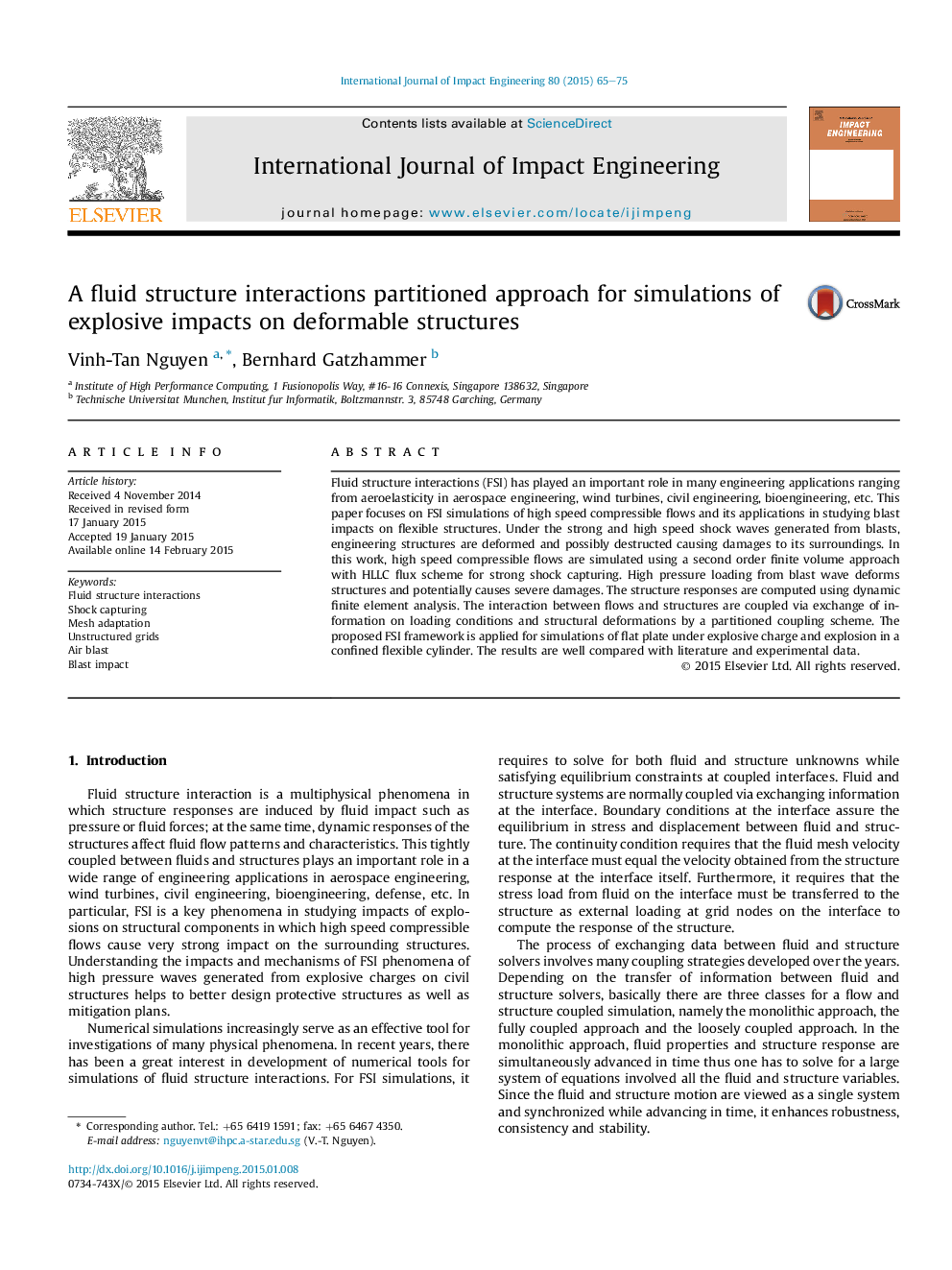| Article ID | Journal | Published Year | Pages | File Type |
|---|---|---|---|---|
| 7173151 | International Journal of Impact Engineering | 2015 | 11 Pages |
Abstract
Fluid structure interactions (FSI) has played an important role in many engineering applications ranging from aeroelasticity in aerospace engineering, wind turbines, civil engineering, bioengineering, etc. This paper focuses on FSI simulations of high speed compressible flows and its applications in studying blast impacts on flexible structures. Under the strong and high speed shock waves generated from blasts, engineering structures are deformed and possibly destructed causing damages to its surroundings. In this work, high speed compressible flows are simulated using a second order finite volume approach with HLLC flux scheme for strong shock capturing. High pressure loading from blast wave deforms structures and potentially causes severe damages. The structure responses are computed using dynamic finite element analysis. The interaction between flows and structures are coupled via exchange of information on loading conditions and structural deformations by a partitioned coupling scheme. The proposed FSI framework is applied for simulations of flat plate under explosive charge and explosion in a confined flexible cylinder. The results are well compared with literature and experimental data.
Keywords
Related Topics
Physical Sciences and Engineering
Engineering
Mechanical Engineering
Authors
Vinh-Tan Nguyen, Bernhard Gatzhammer,
